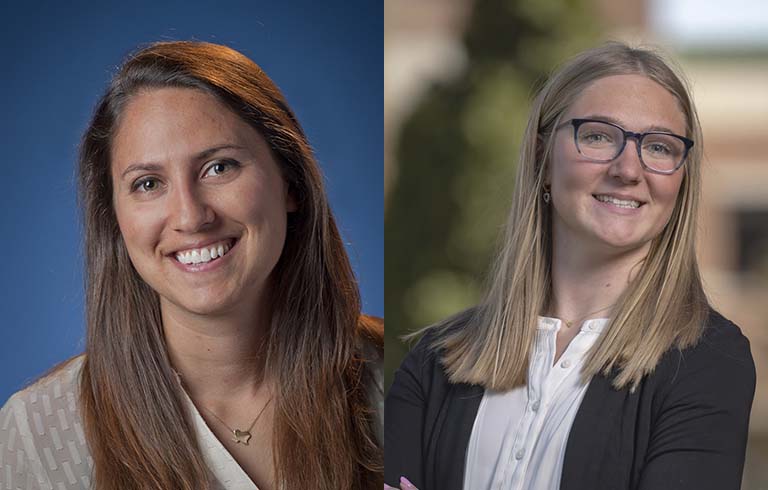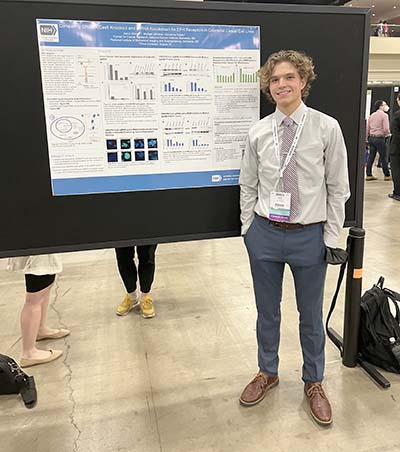
Two from Trine named to Forty Under 40
A Trine University administrator and a graduating senior are included in this year’s Greater Fort Wayne Business Weekly Forty Under 40.
October 20, 2022
By John Lewis
Communication ’23
 Trine University student Aaron Streit had the research opportunity of a lifetime over
the summer.
Trine University student Aaron Streit had the research opportunity of a lifetime over
the summer.
Aaron, a biomedical engineering major from New Paris, Indiana, researched methods to slow the spread of colorectal cancer under Dr. Michael DiPrima, a postdoctoral fellow at the National Institutes of Health (NIH), as part of the NIH’s Biomedical Engineering Summer Internship Program (BESIP).
His research focused on investigating the role EPH receptors play in the growth of colorectal cancer, as well as identifying ways to remove them in order to slow the spread of cancer. EPH receptors are a protein that play an important role in various biological processes, like developing the nervous system. However, having too many receptors, or having them activate too often, has been connected to the creation of cancerous tumors in the human body.
“My first step was to completely validate the CRISPR CAS-9 (gene editing) system the lab wanted to use, making sure every part of it would work as intended, and that took up a lot of the summer,” he said. “After that, we compared it to the shRNA system, the gene silencing process the lab was already using, and found that they had pretty similar effects on the presence of the EPH receptors.”
His everyday responsibilities were focused on running experiments, analyzing and presenting his findings, and collecting previous research on the topic to help define and support his plans. He also attended seminars from the NIH about professional topics in his free time, covering everything from “how to apply to grad school” to “how to improve your resume.”
The experience also gave him a chance to live and work in a new environment.
“The NIH is in Bethesda, Maryland, just ten miles out from Washington D.C., so it was cool to experience the big city like that,” Aaron recalled. “I’ve lived in Indiana my whole life, so I enjoyed meeting new people and having new experiences.”
BESIP also helped him more specifically define what he wants his life to look like after his time at Trine University. With a newfound taste for research, Aaron plans to join a graduate school program in biomedical science, rather than biomedical engineering, and pursue a Ph. D. in the field.
Aaron found this research position after Maria Gerschutz, Ph.D., chair of biomedical engineering at Trine and a former researcher with BESIP, shared it with Trine students as a positive career experience to have. Now that he has spent a summer with the program, Aaron very much agrees.
“If you’re a rising senior, definitely apply for the program. Being able to research at the NIH was an amazing opportunity,” he said. “They have a lot of positions available, so even people outside of biomedical engineering should look into it.”